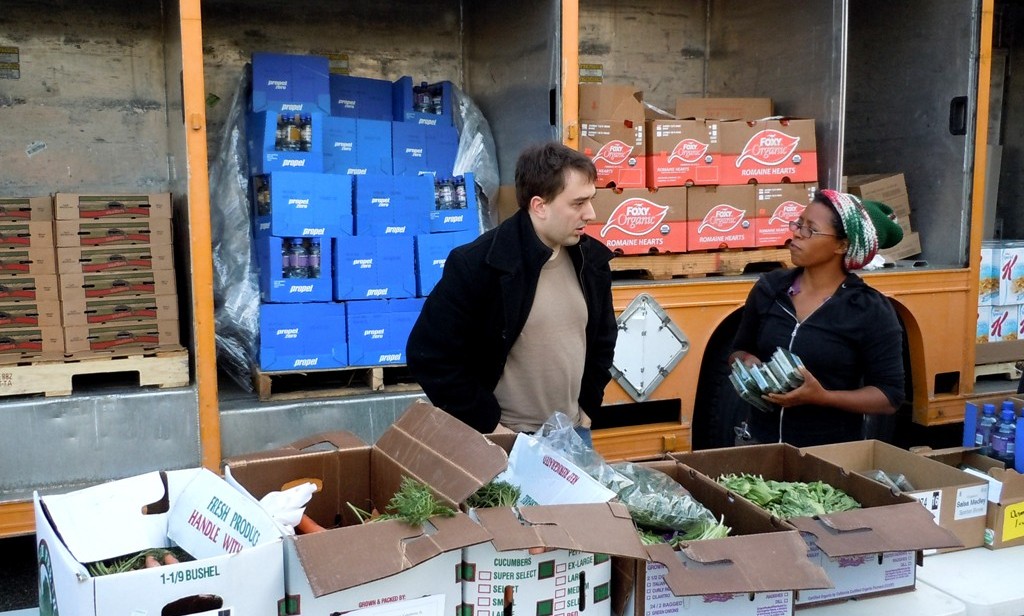
Campau Park Elementary School is located off of South Division in Grand Rapids, on a side street lined with subsidized housing. Once a month, after the school day ends, the elementary school becomes the site of a Mobile Food Pantry from Feeding America West Michigan. Many of the clients at this Mobile Pantry are immigrants from Latin America or refugees from Somalia. Their circumstances and backgrounds are diverse, but they have a common need: nutritious food.
“There are six people in my family, and I’m working just by myself,” said Felix, a middle-aged man who arrived at Campau Park in his work uniform. His income simply isn’t adequate to provide for his large family. The Mobile Pantry allows him to feed his children fresh foods like the blackberries, potatoes, arugula and bread on offer that evening.
“I used to come down here, pick up a box of juice, bring it home, and praise the Lord for where it came from, but never once did I think to help,” Minny said as she pulled boxes of Vitamin Water off the truck and stacked them onto a plastic table for the clients. “I’m 55 and starting now. It’s really been a life-changing experience for me.”
A wiry woman bundled in a winter coat, Minny spoke enthusiastically about the importance of volunteering. As someone who has benefited from food assistance herself, Minny sees volunteering as an essential component of her neighborhood’s recovery. She stayed at the pantry till dark that night, until every one of the nearly 100 clients had been served.
Willie, a resident of an assisted living facility down the block, came to Campau Park in his wheelchair. As a younger man, he saw combat in Europe during World War II, not that he considers the fact very remarkable. Today, retired from his career in property management, Willie relies on Feeding America West Michigan’s Mobile Pantry to keep food in his refrigerator. He had high praise for the program.
“I think this is one of the greatest services they could have done for the community. A lot of people don’t have. There are some that have, but a lot of people don’t,” he said. “When you people bring food, it fills that space, and they’re grateful for it. They really are.”
Help us reach more of our neighbors in need. Give today.
More stories from our community
It’ll All Be Worth It
Traditional Skills Preserved at Baxter Community Center
Dinner for a Sous Chef
Home-Cooked and Hand-Delivered: Senior Meals on Wheels
Homeless in the Upper Peninsula
Lending a Helping Hand in Howard City
Hunger in Uniform
New Mom Finds Help
Solving Senior Hunger in Grand Rapids
Army Couple Determined to Make It Despite Challenges
Bridge to a brighter future in Rockford
A Home in Heartside
Conquering Chronic Illness Through Diet
Michigan Teacher Survives Homelessness
“You Can’t Look Back”
Single Dad Provides for Kids with Food Bank’s Help
We Always Have Each Other

